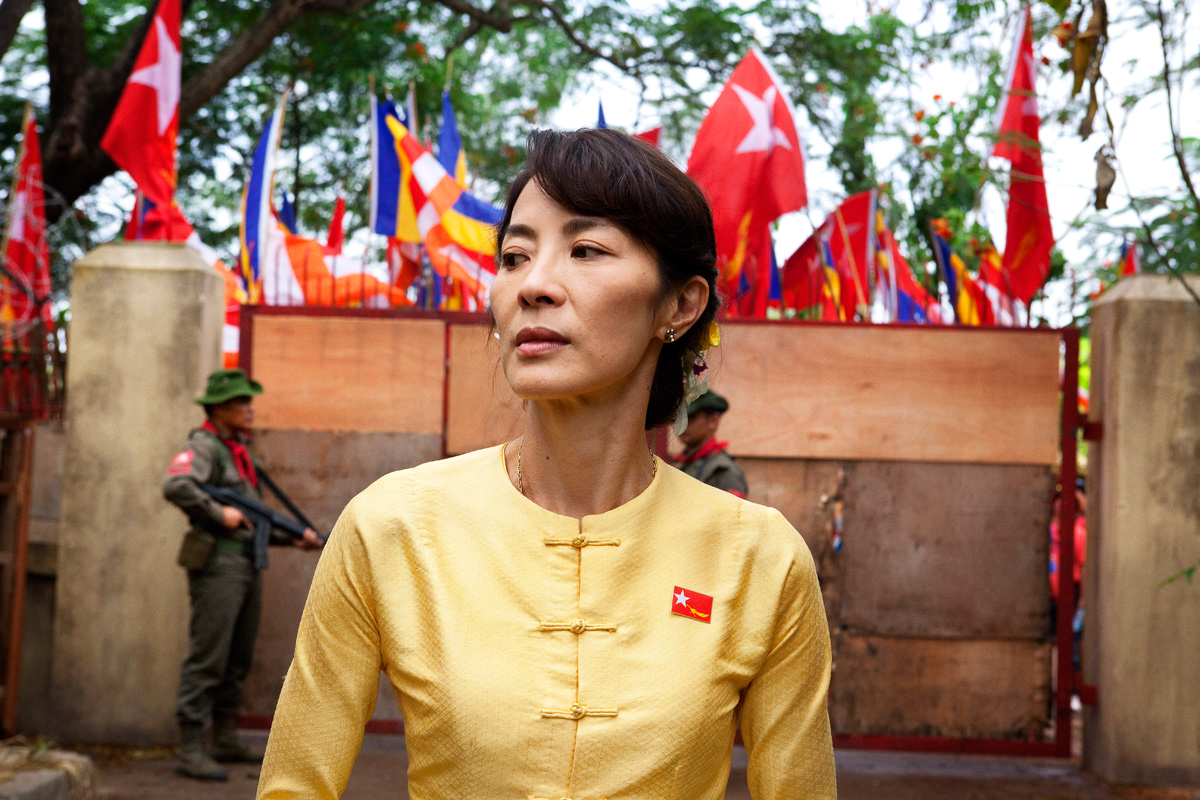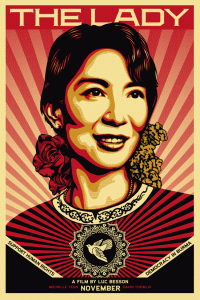
This great epic story gets belittled by its own forced upon melodrama. The Lady tells the “extraordinary” story of Aung San Suu Kyi (Michelle Yeoh) who principally led the new democracy movement in Burma in the latter twilight of the 20th century. Her father was shot while she was young, and once becoming a woman she married British man Michael Aris (David Thewlis). When she returned to Burma to see her dying mother, she unexpectedly became celebrated by the insurgents who wanted her as their spokeswoman in their fight against the oppressive military regime empowered by the evil General Ne Win (Htun Lin). Yeoh’s projection of poise and regality is assured as demonstrated in the scenes of her swaying the masses with pungent words that shook a nation. But small personal drama takes over – the arduousness of marriage becomes mistakably focused while the fascinating backdrop of Burma is blurred.
Without doubt, it is lavishly produced and admirably acted. I honestly got hooked into the romantic melodrama. Aung, a modest housewife, becomes the most powerful woman of a nation and her good, faithful husband waits patients in Oxford, occasionally flying his kids to Burma to occupy the manse that has belonged to the family for generations. To shut Aung up, the oppressive tactics dilled up by General Ne include putting her on house arrest, capturing and seizing all of her crusaders and putting them through penitentiary abuses, and blocking any outside visitors. Despite a decade inside the walls, Aung was still able to win the Nobel Prize, becoming the first to win without the ability to attend her own recipient ceremony. Hmm… we are not sure of her means of how she remained famous and continued her credibility in social impact while she was under detainment.
Even after Aung is lawfully elected as the new president of the democracy, the despotic military kept their grip over Burma. But historical depth is further glossed over by the heartache melodrama once the lonesome Michael becomes afflicted with cancer. Aung is unable to visit her husband even while he lies impotently on a hospital bed, because if she leaves her compound then she surrenders her political position. Thus, this turns into a movie comprised of lots of phone calls and letter-writing, and yet one that abandons any strong political speechwriting. Beautiful photography encapsulates Aung’s efforts into speaking to others on the telephone in her plans to override the written laws. Alas, “The Lady” becomes a dubious epic on rejected visas.
145 Minutes. Unrated. Multiple dialects with some English, includes all subtitles.
DRAMA / FOOD FOR THOUGHT MOVIE / DOWNHEARTED
Film Cousins: “Indochine” (1992, France); “Evita” (1996); “In My Country” (2004); “A Very Long Engagement” (2004, France).





